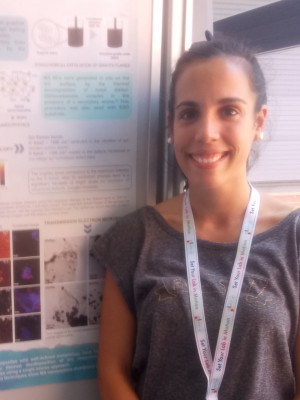abstract
Graphene oxide (GO) has been widely explored as a platform for producing hybrid materials exhibiting synergistic properties of interest in heterogeneous (photo)catalysis. However, there has been less emphasis in demonstrating that such properties are intrinsic to the nature of the hybrid material, which to some extent can be attributed to the lack of straightforward screening techniques. In this work, we demonstrate that surface-enhanced Raman scattering can be easily explored to probe certain regions of GO sheets decorated with a semiconductor (ZnS). In particular, our studies reveal an enhancement of the Raman signal of 4-mercaptopyridine (4-MPy), which was used as a molecular probe, upon adsorption on ZnS@GO materials when compared to adsorption on the separated parent ZnS powders or GO flakes. The GO sheets in the composite play an important role in the enhancement of the Raman signal observed for this molecular probe because they create energy levels within the ZnS energy gap. This hypothesis was further confirmed by electronic density functional theory calculations employed to investigate the adsorption mechanism of 4-MPy on both ZnS and ZnS@GO substrates. The calculated results are in accordance with the experimental data, predicting the adsorption mode on both S and Zn surface sites, with preference toward the sulfur atom due to the influence of GO.
keywords
INITIO MOLECULAR-DYNAMICS; TOTAL-ENERGY CALCULATIONS; METAL SULFIDE COMPOSITES; QUANTUM DOTS; TRANSITION-METALS; NANOPARTICLES; 4-MERCAPTOPYRIDINE; NANOCOMPOSITES; SPECTROSCOPY; CELLS
subject category
Chemistry; Science & Technology - Other Topics; Materials Science
authors
Lopes, JL; Fateixa, S; Estrada, AC; Gouveia, JD; Gomes, JRB; Trindade, T
our authors
Projects
acknowledgements
FCT-Fundacao para a Ciencia e a Tecnologia, I.P., through projects UTAP-ICDT/CTM-NAN/0025/2014 and UID/CTM/50011/2019 and European Regional Development Fund through the project POCI-01-0145-FEDER-007679.







